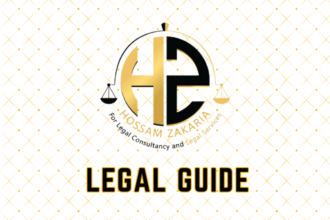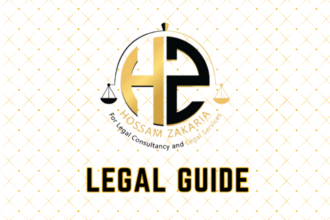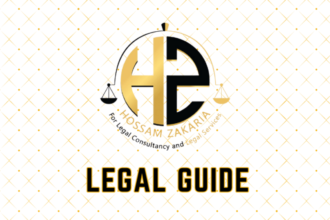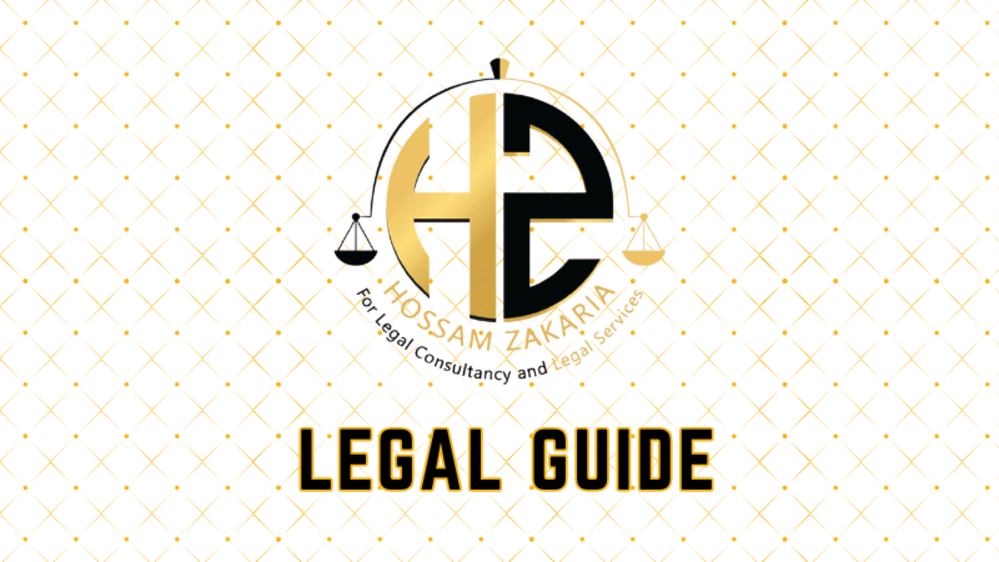Introduction
In an era of intensified global scrutiny and cross-border financial controls, the alignment of anti-money laundering (AML) regulations between Saudi Arabia and the United Arab Emirates is of paramount importance, especially for UAE-based businesses and banking stakeholders with interests or operations across the Kingdom. The Saudi banking sector, since the adoption and recent enhancement of its Anti-Money Laundering Law (Royal Decree No. M/39), operates under strict compliance standards that now interact closely with evolving UAE regulations, including Federal Decree-Law No. 20 of 2018 (as amended), Cabinet Decision No. 10 of 2019, and the latest Ministerial Directives issued in 2023–2024. Effective from 2024, new legal updates in both jurisdictions demand even higher levels of vigilance, real-time risk management, and transparent governance. For UAE executives, legal advisors, compliance officers, and HR leaders, understanding this dynamic is not only good business—it’s a legal imperative. This article provides in-depth legal analysis, practical recommendations, and actionable strategies to ensure seamless compliance and risk mitigation when navigating Saudi AML expectations while operating from or within the UAE.
Table of Contents
- Saudi AML Regulatory Framework: Evolution and Key Provisions
- UAE–Saudi Collaboration and Regulatory Linkages
- Essential AML Compliance Strategies for UAE Stakeholders
- Table: Comparing Old and New AML Laws in Saudi Arabia and the UAE
- Risks of Non-Compliance: Legal, Operational, and Reputational
- Case Studies and Hypothetical Scenarios
- Building Robust Compliance Frameworks: Best Practices
- Conclusion and Forward-Looking Insights
Saudi AML Regulatory Framework: Evolution and Key Provisions
Background and Legislative Foundations
The Kingdom of Saudi Arabia’s cornerstone AML regulation is the Anti-Money Laundering Law promulgated by Royal Decree No. M/39 (2017), alongside its Implementing Regulations, and enforced by the Saudi Central Bank (SAMA), the Financial Sector Development Program, and the Saudi Financial Intelligence Unit. The law is closely aligned with international standards set by the Financial Action Task Force (FATF).
Major 2024 amendments, as recently confirmed by SAMA circulars, include clarification of reporting obligations, transaction monitoring requirements, and the expansion of covered entities to include a wider variety of financial and non-financial professions. These changes mirror the UAE’s own increasing regulatory sophistication, ensuring that cross-border banking activities are subject to stringent scrutiny.
Key Provisions and Regulatory Highlights
- Definition of Money Laundering: Includes any act or attempt to conceal, transfer, or convert property derived from criminal activity, now specifically encompassing digital assets and new financial instruments.
- Covered Entities: All banks, financial institutions, money service businesses, designated non-financial businesses, and professions (DNFBPs), including auditors and legal consultancies operating across borders.
- Customer Due Diligence (CDD): Detailed KYC obligations, ongoing monitoring, beneficial ownership disclosure, and enhanced due diligence for high-risk customers, including politically exposed persons (PEPs).
- Suspicious Transaction Reporting (STR): Timely reporting to SAMA and the Saudi Financial Intelligence Unit of any unusual, large, or unexplained transactions, regardless of the amount.
- Record Retention: Minimum five years for transactions, internal investigations, training records, and customer documentation.
- Sanctions and Penalties: Significant financial penalties, potential imprisonment, business license revocation, and reputational blacklisting for non-compliance or failure to report.
UAE–Saudi Collaboration and Regulatory Linkages
With increasing capital flows, trade links, and shared economic initiatives, the regulatory collaboration between the UAE and Saudi Arabia has deepened, especially in the post-2023 period. The UAE, through the Central Bank, Ministry of Justice, and the UAE Financial Intelligence Unit (FIU), actively coordinates with SAMA on cross-border AML supervision, information sharing, and joint inspections.
Recent Developments:
- Implementation of the GCC Unified AML Policy, requiring mutual recognition of investigative and enforcement actions.
- Joint taskforce on digital assets and virtual currencies to address emerging money laundering typologies.
- UAE Cabinet Decision No. 10/2019 (as amended 2023): Specifies compliance obligations for banks servicing GCC nationals or engaging in Saudi-related correspondent banking.
- Formalization of extradition and asset-freezing protocols between Saudi Arabia and the UAE.
For UAE organizations, this translates into a direct obligation to ensure that controls and reporting standards are not only compliant locally but also compatible with the expectations and frameworks of Saudi regulators.
Essential AML Compliance Strategies for UAE Stakeholders
1. Risk Assessments Tailored to Saudi Exposure
Adopt a risk-based approach that specifically evaluates exposure to Saudi transactions, joint ventures, and client base. Risks may include:
- Saudi-linked correspondent bank accounts
- Trade finance deals involving Saudi counterparties
- UAE business subsidiaries or branches operating in Saudi Arabia
- High-net-worth individuals with dual residency or business activity across both jurisdictions
2. Enhanced Due Diligence and Transaction Monitoring
Integrate advanced technologies for real-time monitoring of transactions with potential Saudi connections, focusing on identifying anomalies, third-party payments, and rapidly escalating volume or frequency patterns. Ensure automated screening of Saudi sanctions lists and adverse media monitoring.
3. Governance, Training, and Internal Controls
Establish robust internal controls with clear lines of responsibility spanning compliance, risk management, HR, and IT. Regularly train staff on the nuances of Saudi and UAE AML expectations, including updates on FATF reviews or jurisdictional “grey-listing” risks. Appoint designated Money Laundering Reporting Officers (MLROs) with cross-border mandate.
4. Data Retention and Confidentiality Standards
Harmonize data retention processes to satisfy the longest statutory period required under Saudi or UAE laws. Implement encryption and secure transfer protocols, particularly for sharing suspect transaction information between UAE and Saudi authorities.
Table: Comparing Old and New AML Laws in Saudi Arabia and the UAE
Visual Suggestion: Place a comparative table for easy reference.
| Element | Previous Saudi AML (Pre-2017) | Current Saudi AML (Post-2017/2024) | Current UAE AML (2024 Updates) |
|---|---|---|---|
| Definition of Money Laundering | Narrow focus, limited to traditional assets | Includes digital assets, new fintech products | Expanded to include virtual currencies, crowdfunding |
| Reporting Obligation Threshold | Fixed monetary thresholds | “Regardless of amount” for suspicious transactions | Mandatory for all suspicious activity, no minimum amount |
| MLRO Appointment | Not always required | Mandatory for covered entities | Mandatory; must be registered with Central Bank and MOJ |
| Penalties | Lesser; focus on fines | Severe; large fines, imprisonment, public disclosure | Severe; administrative closure, asset forfeiture |
| Record Retention | 3–5 years, inconsistently applied | Strict 5+ years minimum, subject to audit | 5+ years, digital access must be ensured |
Alt text: Chart comparing Saudi and UAE AML law evolution.
Risks of Non-Compliance: Legal, Operational, and Reputational
Legal Consequences in Saudi and the UAE
- Criminal Prosecution: Voluntary or negligent non-compliance subjects directors and managers to prosecution in both countries.
- Heavy Fines: Hundreds of thousands to millions of riyals/dirhams imposed for each violation, compounded for repeat offenses.
- Revocation of Licenses: Both jurisdictions now actively revoke or suspend banking and business licenses with immediate effect in cases of serious or repeated breaches.
- Cross-Border Asset Freezes: Financial assets and accounts can be frozen in either country upon request, pending investigation.
Operational and Market Impact
- Restricted Access: Entities subject to enforcement may be denied access to correspondent banking or financial markets in Saudi Arabia and the UAE.
- Increased Regulatory Scrutiny: Entities found non-compliant are placed under ongoing monitoring and made subject to regular audits by SAMA or UAE Central Bank.
- Loss of Business Opportunities: Damage to reputation often leads to loss of commercial relationships, particularly in trade finance and cross-border investment arenas.
- “Name and Shame” Publication: Non-compliant organizations may be publicly listed by Saudi and UAE authorities, leading to further reputational harm.
Case Studies and Hypothetical Scenarios
Case Study 1: UAE Bank with Saudi Correspondent Accounts
Scenario: A leading UAE-based bank maintains several correspondent accounts for major Saudi commercial banks. During a routine audit, SAMA identifies discrepancies in customer verification records forwarded from the UAE institution, particularly involving transactions routed through shell companies in Europe.
Analysis and Impact: Both the Saudi and UAE entities are subject to dual investigation by SAMA and the UAE Central Bank. Swift information-sharing, coupled with immediate internal investigation, helps avoid criminal sanctions. However, lack of automated transaction monitoring results in a significant fine for the UAE bank and a six-month suspension of correspondent privileges in the Kingdom.
Case Study 2: Corporate Investment Vehicle Across UAE and KSA
Scenario: A UAE-incorporated private equity fund invests in Saudi infrastructure projects via several SPVs. The fund’s MLRO, based in Dubai, fails to file a suspicious transaction report regarding unusually high inflows from offshore sources.
Analysis and Impact: Both the fund and its management are prosecuted under Article 18 of the Saudi AML Law and Article 11 of the UAE AML law (Federal Decree-Law No. 20 of 2018 as amended). Directors face criminal liability, and the fund faces asset freezes in both jurisdictions. Deployment of a new AI-driven alert system and comprehensive staff retraining is mandated as part of the remediation plan.
Hypothetical: Non-Financial Business (Legal Consultancy)
Scenario: A major UAE-based law firm handling real estate deals in Riyadh overlooks beneficial ownership verification for a Saudi client. A subsequent audit reveals the client was acting as a front for a sanctioned entity.
Analysis and Impact: The law firm is fined, required to publish its violation, and must report on remedial measures taken. Its license to handle Arabic legal work is suspended pending review, with significant negative media coverage impacting client confidence.
Building Robust Compliance Frameworks: Best Practices
Step-by-Step AML Process Flow (Visual Suggestion)
Visual Suggestion: Insert a visually engaging flowchart outlining the AML compliance workflow for entities with Saudi exposure—starting from onboarding, through transaction monitoring, to reporting and audit.
- Step 1: Client Onboarding — Enhanced CDD for Saudi-related clients
- Step 2: Screening — Cross-check against Saudi/UAE sanctions lists, PEP, and adverse media
- Step 3: Ongoing Monitoring — Automated anomaly detection, periodic relationship reviews
- Step 4: Internal Reporting — Escalation to MLRO for review
- Step 5: External Reports — Timely STRs to SAMA and UAE FIU
- Step 6: Documentation and Audit — Secure, accessible, and compliant records
Compliance Checklist for UAE Organizations Engaged with Saudi Banking Sector
| Checklist Item | Status/Action Required |
|---|---|
| Appoint cross-border MLRO and deputy | Ensure registration in both UAE and KSA |
| Establish bilingual compliance policies (Arabic and English) | Deploy templates as per SAMA and CBUAE guidelines |
| Implement real-time sanctions screening technology | Integrate with core banking systems |
| Maintain a centralized record retention system | Test retrieval and encryption for audits |
| Conduct annual cross-border compliance audit | Commission by accredited external consultants |
| Deliver periodic AML training to all Saudi-facing staff | Mandate test certification records |
Conclusion and Forward-Looking Insights
The changing regulatory dynamics between Saudi Arabia and the UAE mean that robust and harmonized AML risk management is no longer optional for UAE organizations engaged with Saudi banking or commercial activity. The introduction of more stringent definitions, expanded reporting obligations, and the criminalization of minor non-compliance collectively heighten the stakes for legal, compliance, HR, and leadership teams.
Looking ahead, stakeholders must remain vigilant, with proactive updates to their internal controls and policies to adapt to continuing legal reforms and regulatory guidance from the UAE Ministry of Justice, SAMA, and international bodies like the FATF. Regular gap analyses, dynamic risk assessments, and investments in compliance technology will be central to maintaining consistency and integrity across both jurisdictions.
Our recommendation: Treat AML compliance as a living, evolving process—seamlessly embedded into all facets of decision-making, commercial expansion, and cross-border banking strategy. UAE enterprises should prioritize structured learning, AI-driven analytics, and trusted advisory relationships in this high-stakes regulatory era.



